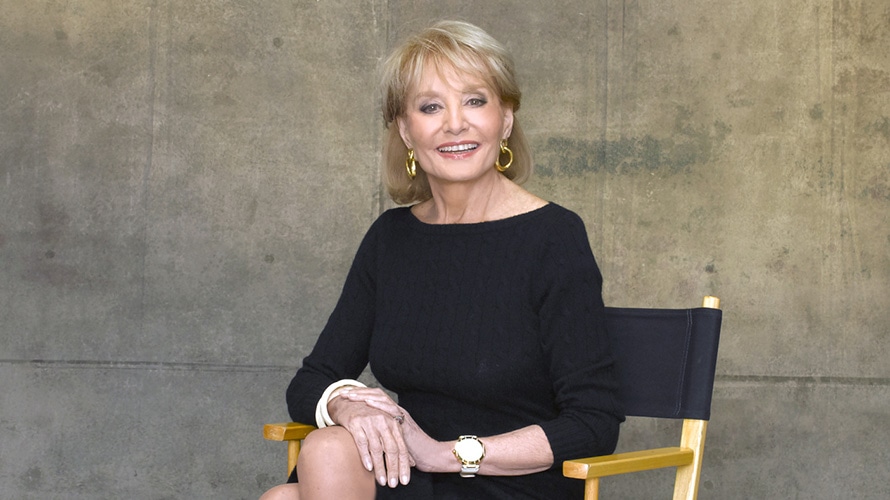
Barbara Walters is a well-known, now retired, American broadcast journalist who is world renowned for her massive impact on the media world. Over the past decades, she has secured exclusive first interviews with high-profile celebrities and politicians thanks to her hard work and impressive hosting abilities.
Her relaxed manner when interviewing famous people seems to take roots in her youth. With a father who owned nightclubs and was active in show business, she was surrounded by celebrities from an early age. She attended both public and private schools and graduated from Sarah Lawrence College in 1953 with a bachelor's degree in English.
She worked as a publicist for Tex McCrary and wrote content for CBS network’s Morning Show before joining NBC in 1961 as a researcher and writer of women-related stories for its famous Today Show.
Her popularity and responsibilities quicky increased. However, she had to wait until 1974 to finally be given the title of co-host. In a male dominated era when women weren’t at the forefront of television and were not taken seriously reporting hard news, it was the first time in history that a woman held such a title.
Two years later, she became the first woman to co-anchor a nightly newscast on the ABC Evening News, and was offered a $1 million annual salary, which at that time was without precedent. Over the years, she appeared on several programs including 60 Minutes and 20/20. She also conceived American talk show The View which has been a hit ever since.
Her strong and casual yet tactful ability to interview guests led her to earn the respect of high-profile individuals. She once explained, “If I had told my young self that I would have the opportunity to interview every American President and First Lady since Richard Nixon, be able to do the first joint interview with Egypt’s President Anwar Sadat and Israel’s Prime Minister Menachem Begin, or my unforgettable sit-down with Cuban President Fidel Castro, I would not have believed it. Yet, I knew I was driven to interview world leaders and icons.”
In 2013, after nearly 60 years in journalism, she announced her retirement, saying "I do not want to appear on another program or climb another mountain. I want instead to sit on a sunny field and admire the very gifted women — and OK, some men too — who will be taking my place."
Throughout her career she has paved the way for women in journalism, making her way up and breaking barriers at a time when women were facing persistent sexism in the working world. Just as importantly, she has made accessible the historic sentiments of countless public figures, whose words will be immortalized in her interviews.
